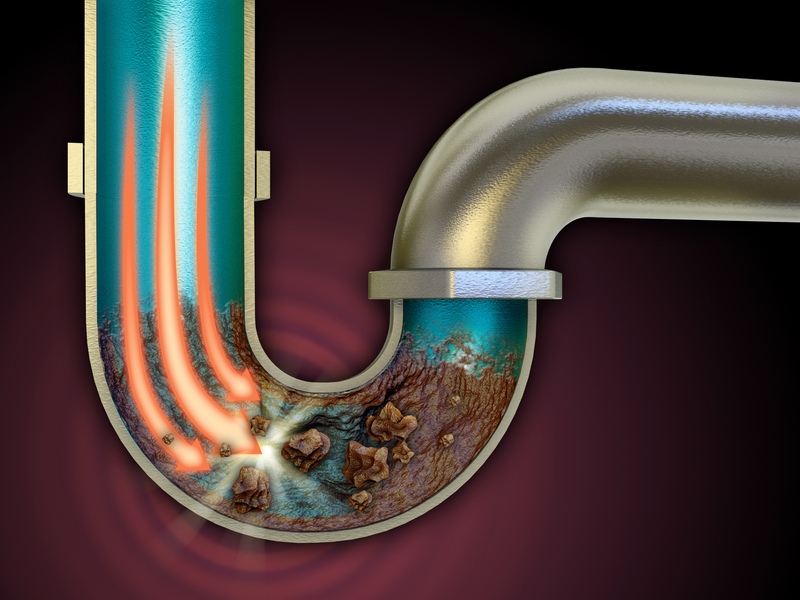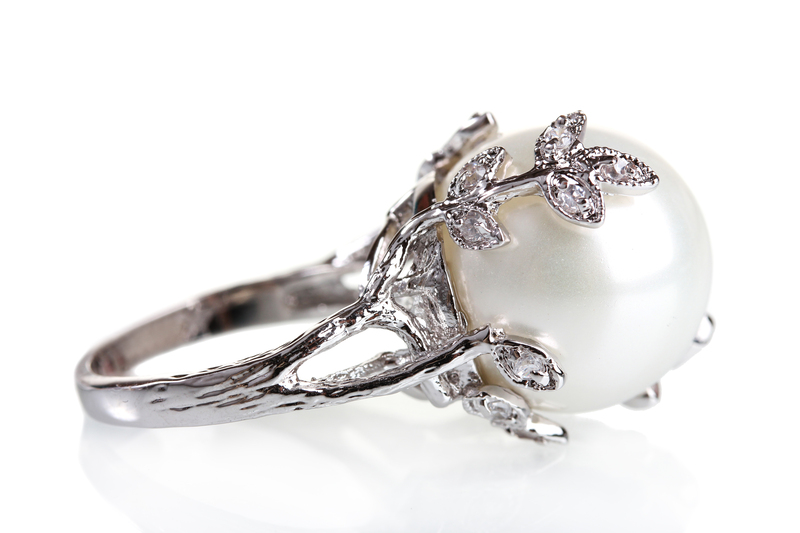Master Pet Odor Eradication for a Harmonious Home
Posted on 29/08/2025
Master Pet Odor Eradication for a Harmonious Home
Looking to create a fresh, inviting haven while sharing your space with beloved pets? Mastering pet odor elimination is the key to maintaining not only a clean home, but also preserving harmony for every member of your household. Whether you're a devoted cat person, a cheerful dog owner, or the guardian of smaller furry companions, unpleasant animal smells can undermine your sanctuary. This comprehensive guide offers powerful, science-backed solutions for pet odor eradication. Say goodbye to lingering smells and hello to a revitalized, harmonious home environment!
Understanding the Sources of Pet Odor
Before we dive into expert strategies for the removal of pet smells, it's crucial to understand where these odors originate. Recognizing the source will inform the right approach for tackling the issue.
Main Causes of Pet Odors
- Urine and Feces: The top culprits for household pet smells, especially from accidents or litter boxes.
- Dander and Saliva: Invisible flakes and dried saliva from your pet can accumulate, creating musty aromas.
- Fur and Oils: Skin oils from dogs and cats coat carpets and furniture, eventually attracting bacteria.
- Poor Hygiene: Infrequent grooming allows odors to intensify in your pet's coat and bedding.
- Inadequate Ventilation: Closed, stuffy rooms can trap and amplify pet-related smells.
By pinpointing the root cause, you're already one step closer to achieving pet odor control!

The Science Behind Pet Odor Neutralization
Eliminating pet odors isn't just about masking smells; it's about neutralizing odor molecules. Many commercial air fresheners simply cover up the problem. True pet odor eradication means breaking down or absorbing the compounds that make up the foul smell.
Common offensive odor molecules from pets are ammonia-based (from urine), or stem from bacterial decomposition of organic matter. These require specific treatments:
- Enzymatic Cleaners: Break down organic material and remove odor at the molecular level.
- Activated Charcoal: Absorbs airborne odor particles.
- Baking Soda: Neutralizes acidic and basic odor compounds.
- Essential Oils (with care): Can offer natural odor fighting potential, but ensure they are safe for pets.
Comprehensive Strategies for Master Pet Odor Removal
1. Immediate Response to Pet Accidents
- Act fast! The quicker you blot, soak, or scoop up pet accidents, the less likely the smells will linger.
- Use paper towels or clean cloths to absorb as much liquid as possible from carpets or upholstery.
- Never rub; blot to avoid pushing stains and odor deeper.
- Apply enzymatic cleaner generously and allow it to air dry.
- For large or repeating issues, consider renting a carpet extractor or hiring a professional cleaning service.
2. Routine Cleaning for Pet-Friendly Homes
- Bathe and brush your pets regularly - A clean pet is a less pungent pet! Opt for pet-specific shampoos designed for odor control.
- Wash bedding, toys, and soft furnishings - Use hot water and a strong detergent. Add a half-cup of baking soda for boosted odor removal.
- Vacuum frequently - Focus on carpets, upholstery, and drapes where fur and dander accumulate.
- Clean litter boxes daily and change the litter at least once a week.
- Mop or steam clean hard floors - Pet paws and oils can build up invisible residue over time.
3. Advanced Odor-Fighting Tools & Techniques
- HEPA air purifiers: These capture airborne dander and odor-causing particles, making the air cleaner and fresher.
- Ozone generators: While effective, these must be used with extreme caution--never let pets or people stay in the room during use.
- UV blacklights: Reveal invisible urine stains so you can target problem areas precisely.
- Baking soda carpets: Sprinkle, let sit overnight, and vacuum thoroughly for easy deodorization.
- Activated charcoal sachets: Place in problem spots like closets, near litter boxes, or pet beds.
4. Natural Pet Odor Remedies (Pet-Safe Solutions)
Many pet parents prefer non-toxic, gentle remedies. Here are some natural pet odor elimination ideas:
- White vinegar and water (1:1): Mopping floors or wiping surfaces neutralizes pet odors safely.
- Baking soda paste: For persistent, small spots on soft furnishings.
- Houseplants: Certain plants (like Boston ferns or peace lilies) can absorb odors and improve air quality. Always check for plant toxicity before use.
- Lemon & citrus peels: Place in bins or small containers to freshen musty corners.
Deep Cleaning: Targeting Hidden Pet Odor Sources
Even the most diligent pet owner can miss hidden odor sources. Here's how to hunt down and eliminate those stubborn smells:
Common Hidden Odor Hotspots:
- Under or behind furniture: Toys, hair, and accidents easily escape sight.
- HVAC filters and vents: Fur and dander circulate throughout the home if not regularly changed or cleaned.
- Baseboards and corners: Moisture and organic debris can collect here, leading to mold and mildewy pet smells.
- Window treatments: Curtains and blinds often trap odors even after washing the rest of the home.
- In-carpet padding: For recurring pet urine issues, deep professional cleaning or replacement may be necessary.
Prevention: Keep Pet Odors Away for Good
A harmonious, odor-free home requires consistent effort and smart prevention strategies. Once you've eradicated existing odors, put these maintenance habits in place to prevent future problems:
Best Prevention Tips
- Establish a Grooming Routine
Regular baths, brushing, and nail trims reduce both dander and general "pet smell." - Set Up Pet Zones
Create designated areas for eating, sleeping, and play--then make those areas a cleaning priority. - Promptly Clean Accidents
Institute a habit of quickly addressing any messes to prevent lasting odor absorption. - Use Washable Covers
Protect furniture and beds with machine-washable fabric covers for easy cleaning. - Change Air Filters Often
Fresh filters minimize airborne dander and scents instantly. - Choose the Right Pet Diet
Diet has a surprising impact on how your pet smells! Speak with your vet about options that promote healthy skin and digestion--many low-grade foods can cause more pungent waste.
What About Stubborn or Old Pet Odors?
No matter how vigilant you are, some odors can seem nearly impossible to remove. If you're struggling with deeply embedded pet smells, try these approaches:
- Repeat enzyme treatments: Sometimes, multiple applications are necessary to fully break down lingering organic residue.
- Professional steam cleaning: Deep cleans both hard and soft surfaces, flushing out particles that ordinary cleaning can't touch.
- Subfloor or drywall remediation: For severe or old urine damage, it may be necessary to replace sections of flooring or wall to fully banish the smell.
- Consult a specialist: Odor-removal professionals use advanced techniques like thermal fogging or ozone to eradicate persistent pet odors.
Don't be discouraged--even the strongest pet odors can be conquered with the right strategy!
Common Myths About Pet Odor Elimination
With so much advice floating around, it's easy to fall for myths that might hinder your progress. Let's debunk some of the most pervasive misconceptions:
-
Myth 1: "Air fresheners will solve pet odor problems."
Most only mask odors for a short time -- they don't break down the actual cause. True pet odor removal requires neutralizing or fully eliminating the compounds themselves. -
Myth 2: "Vinegar is always safe for all surfaces and pets."
While vinegar is a great odor neutralizer, it can damage some hardwood finishes and may be unpleasant for sensitive pets. Always dilute and test. -
Myth 3: "Once cleaned, the odor is gone for good."
Many times, residue deep within fabrics or flooring will re-release odors over time. Multiple, thorough cleanings are sometimes necessary. -
Myth 4: "Odors just come with owning pets."
With modern cleaning science and the right routines, you can truly enjoy both pets and a fresh-smelling home!
The Role of Diet and Health in Pet Odor Control
Believe it or not, your pet's diet and health have a significant impact on household odor. Here's why:
- Poor diet or digestive issues: These can cause especially strong-smelling waste and flatulence.
- Skin infections or dental problems: Unpleasant smells may come directly from your pet rather than their environment.
- Urinary tract infections or liver issues: These can alter the odor of urine or breath, indicating a need for a veterinary check-up.
If you notice persistent or suddenly worsening odors, consulting your veterinarian is essential to rule out any underlying health problems.

Why a Harmonious, Odor-Free Home Matters
Maintaining a clean-smelling household isn't just for your comfort--it's vital for physical and emotional wellbeing. Unresolved odors can:
- Create a negative impression for guests
- Lead to household disputes or landlord complaints
- Hide potential health hazards like mold or bacteria
- Reduce your own enjoyment of your home and your bond with your pet
Investing in consistent pet odor management elevates your quality of life and preserves a peaceful, harmonious environment for every resident.
Conclusion: Enjoy a Fresh, Balanced Home With Your Pets
You don't have to compromise between a harmonious home and a happy pet. With the methods outlined above, pet odor eradication is truly possible for everyone.
- Act fast to tackle accidents
- Rely on science-backed cleaning products and routines
- Address your pet's health and diet
- Prevent future odor buildup through smart planning
Implement these proven steps and you'll soon master pet odor control, creating a sanctuary you'll love to share--with both guests and your beloved animal companions.
If you found this article helpful, share it with fellow pet owners and keep your journey toward a harmonious, odor-free home going strong!
Latest Posts
Beat the Clock with Time-Saving Cleaning Methods
Conquer Mould on Window Sills: Expert Advice
Say Goodbye to Streaks: Tips for Crystal-Clear Windows



